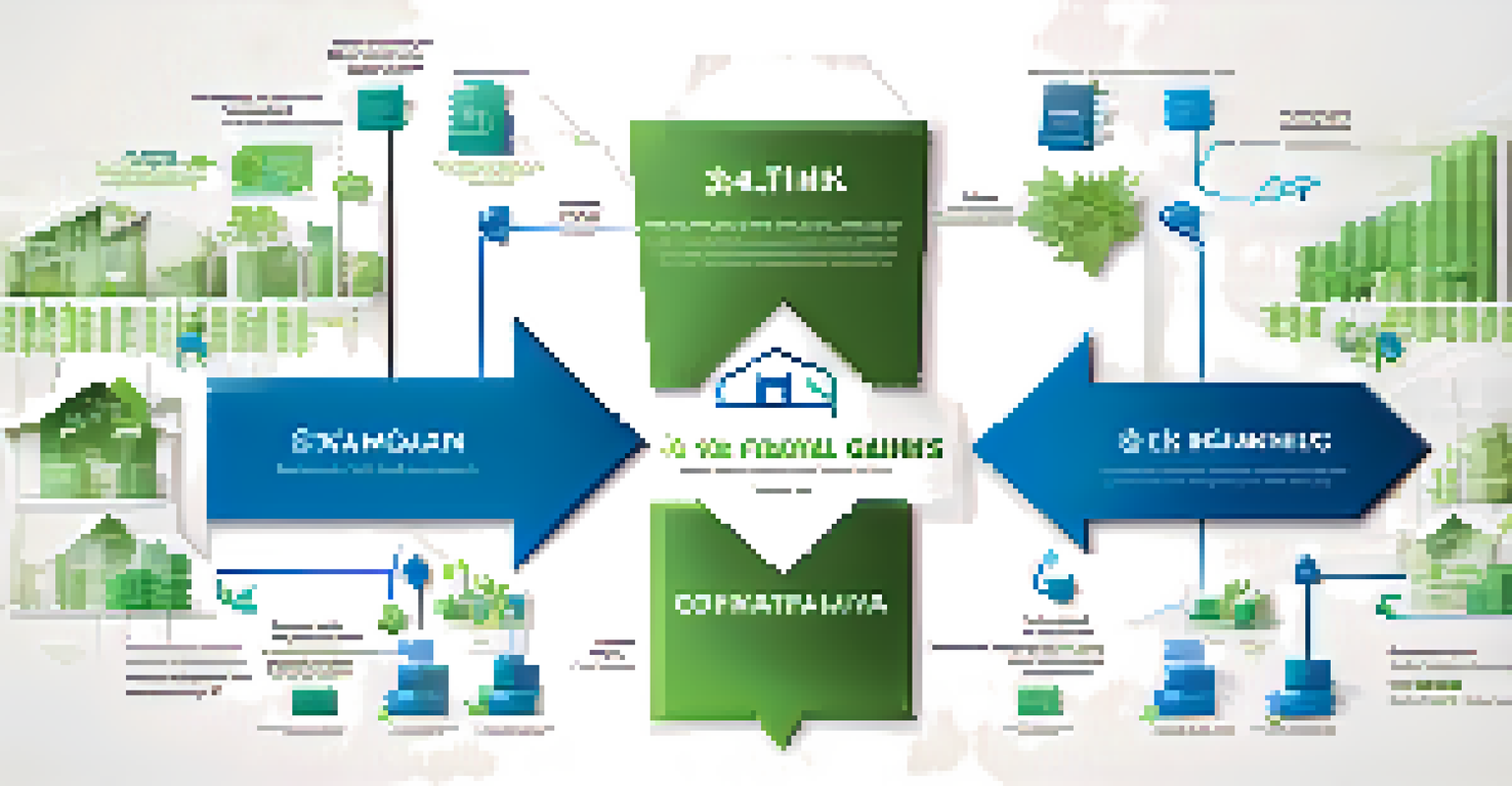Understanding the Tax Implications of Selling Your Home

What Are Capital Gains and Why Do They Matter?
Capital gains refer to the profit you make when selling an asset, such as your home. If you sell your house for more than you bought it, the difference is considered a capital gain, which can have tax implications. Understanding this concept is crucial because it determines if you'll owe taxes on that profit.
The only things certain in life are death and taxes.
For instance, if you purchased your home for $300,000 and sold it for $400,000, your capital gain would be $100,000. This gain is what the IRS looks at when determining your tax liability. Knowing how capital gains work helps you plan better before selling your home.
It's important to note that not all gains are taxable, thanks to exemptions available for primary residences. This is where understanding the nuances of capital gains can save you money.
Primary Residence Exemption: What You Need to Know
The IRS offers a primary residence exemption that can significantly reduce your taxable gains. If you’ve lived in your home for two of the last five years, you can exclude up to $250,000 of gain if you’re single, and up to $500,000 if you’re married and filing jointly. This exemption can be a game changer when it comes to your tax bill.

Imagine selling your home for $600,000 after living in it for several years. If you qualify for the full exemption, you could potentially avoid taxes on a large portion of your gain. This is a fantastic incentive for homeowners to understand and utilize.
Understanding Capital Gains
Capital gains are the profits made from selling an asset, and knowing how they work is crucial for tax planning.
However, be mindful of the rules surrounding the exemption. For example, if you've rented your home part-time or used it for business, your exemption might be affected.
Calculating Your Adjusted Basis: A Key Step
Your adjusted basis is essentially your original purchase price, plus any improvements made, minus any depreciation taken. This figure is crucial in determining your capital gains when selling your home. For example, if you bought your home for $300,000 and added a new deck worth $30,000, your adjusted basis would be $330,000.
In this world, nothing can be said to be certain, except death and taxes.
Calculating your adjusted basis accurately is important because it directly impacts the amount of taxable gain you report. The lower your gain, the smaller your tax bill, making this calculation worth your time and attention.
It’s also important to keep good records of all improvements and expenses related to your home. Documentation can make a big difference should the IRS come calling.
State Taxes: A Local Consideration
While the federal government has its rules, state taxes can also play a significant role in your tax liabilities when selling your home. Some states impose a capital gains tax in addition to federal taxes, which can increase the amount you owe. This is why it’s essential to research your specific state's tax laws.
For example, California has a capital gains tax that can be quite steep, while other states might not tax capital gains at all. Knowing your state’s rules can help you strategize your sale and minimize your overall tax burden.
Utilizing Primary Residence Exemption
Homeowners can exclude significant gains from taxes if they meet residency requirements, which can greatly reduce tax liability.
Always consult with a local tax professional or accountant to get a clear picture of what you might owe based on your location.
The Role of 1031 Exchanges in Deferring Taxes
A 1031 exchange allows you to defer paying taxes on capital gains by reinvesting the proceeds from your home sale into another similar property. This can be a smart strategy for real estate investors looking to grow their portfolio without incurring immediate tax liabilities. It’s like hitting the pause button on your tax bill.
For example, if you sold a rental property for a profit and used that money to purchase another investment property, you might not have to pay taxes on that gain at the time of the sale. However, the rules for 1031 exchanges can be complex, requiring you to meet specific criteria and timelines.
It's crucial to work with a knowledgeable real estate professional and tax advisor to ensure you navigate this process correctly and take full advantage of the benefits.
Home Improvements and Their Tax Implications
Not all home improvements will increase your tax basis, but many can positively impact your capital gains calculation. For instance, renovations that enhance your home’s value, like a new kitchen or bathroom, can be added to your basis, reducing your taxable gain. This is why strategic improvements can pay off when you sell.
On the flip side, routine repairs and updates typically don’t count toward your basis. For example, repainting a room or fixing a leaky faucet won’t help you reduce your taxable gain. Understanding what qualifies is essential for maximizing your tax benefits.
Planning to Minimize Tax Liability
Strategic planning and consulting with a tax professional can help homeowners effectively manage their capital gains taxes.
Keeping detailed records and receipts of all significant improvements can help you build a strong case if you ever need to justify your adjusted basis to the IRS.
Planning Ahead: Strategies to Minimize Tax Liability
The key to managing your tax implications when selling your home is planning ahead. Understanding potential capital gains and how they apply to your situation can help you make informed decisions. Consider timing your sale to coincide with a year when your income might be lower, potentially reducing your tax bracket.
Additionally, if you’re close to the exemption limits, it might be worth holding off on selling until you can maximize your exclusions. Even small changes in your situation can have a big impact on your tax liability.

Consulting with a tax professional can provide you with tailored strategies based on your specific circumstances, ensuring you make the most of your sale.